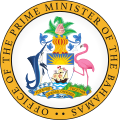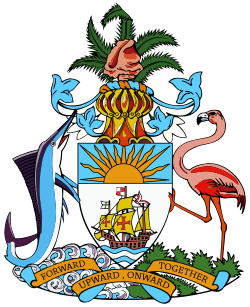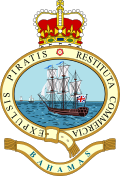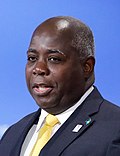| Prime Minister of the Commonwealth of The Bahamas | |
|---|---|
 Seal of the prime minister of the Bahamas | |
 | |
| Government Cabinet | |
| Style | The Most Honourable |
| Type | Head of government |
| Abbreviation | PM |
| Seat | Nassau |
| Appointer | Governor-General |
| Term length | At the governor-general's pleasure (normally 5 years) |
| Precursor | Premier of the Bahamas Islands |
| Inaugural holder | Sir Lynden Pindling |
| Formation | 10 May 1969 |
| Deputy | Deputy Prime Minister of the Bahamas |
| Salary | B$86,000 annually [1] |
| Website | bahamas.gov.bs |
 |
|---|
| |
The prime minister of the Bahamas is the head of government of the Bahamas. The prime minister is formally appointed into office by the governor-general of the Bahamas, who represents Charles III, the king of the Bahamas (the Bahamian head of state).
Contents
- Constitutional basis
- Official oath of office
- Office of the Prime Minister
- List of heads of government of the Bahamas (1955–present)
- Chief minister of the Bahamas Islands (1955–1964)
- Premiers of the Bahamas Islands (1964–1969)
- Prime minister of the Commonwealth of the Bahamas Islands (1969–1973)
- Prime ministers of the Commonwealth of the Bahamas (1973–present)
- Timeline
- Deputy prime ministers
- See also
- References
The following article contains a list of prime ministers of the Bahamas, from the establishment of the position of chief minister of the Bahamas Islands in 1955 to the present day.









